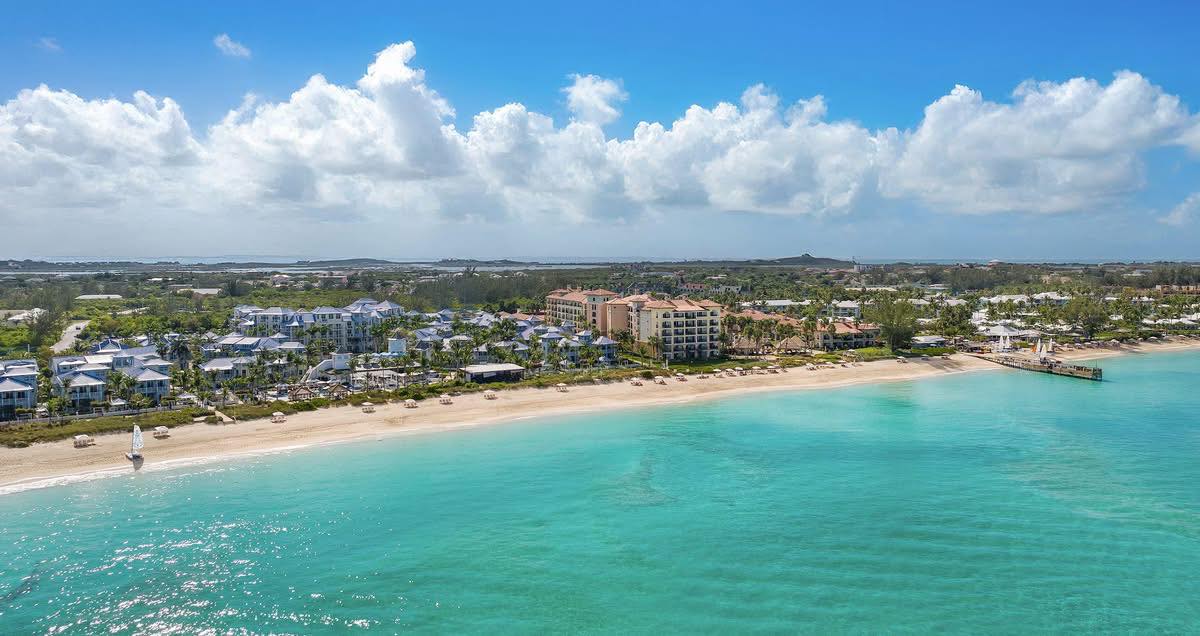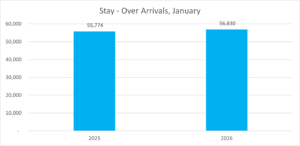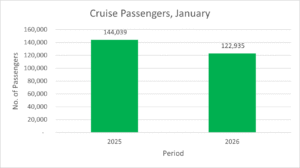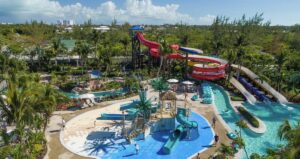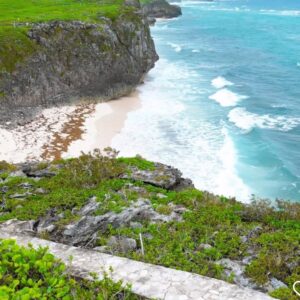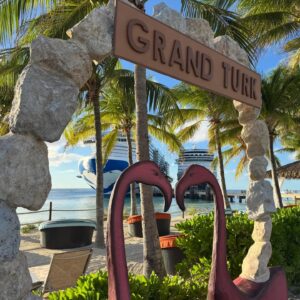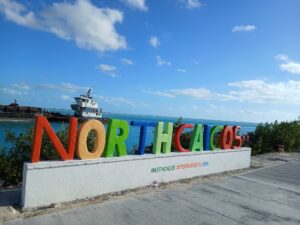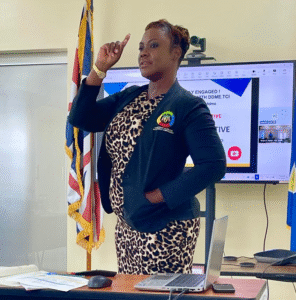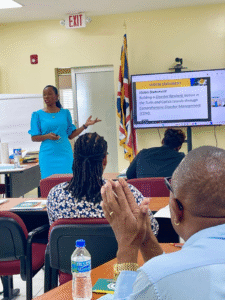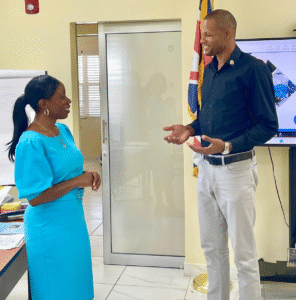Resort-wide customer-facing initiatives
Team activations supporting local activations
Striving for Green Globe Certification
31 January 2025: Turks and Caicos is known as a destination for being “beautiful by nature”. As a leading privately-owned resort, firmly embedded in its community, conservation and social responsibility are key drivers at Wymara Resort + Villas.
CEO Shelley Rincon says “At Wymara we understand that however luxurious our resort is, with the highest standards of service, the reason that many guests choose to come here is also because of the natural attractions close by. From snorkeling and scuba diving on one of the finest reef systems in the world, to kayaking in the mangroves with turtles, it’s a huge draw and one that we feel compelled to support as best we can.”
Supporting reef conservation
The resort takes a multi-faceted approach towards its corporate social responsibility, much of which goes to support the Turks & Caicos Reef Fund. Established in 2010 as a nongovernmental organisation, the Fund focuses on the protection of the fragile ecosystem around the islands.
Other projects led by the Fund include tackling Stony Coral Tissue Loss Disease, installing dive boat moorings, reporting on invasive Lionfish and surveying the coral reefs off the coast of uninhabited East Caicos.
Lionfish and surveying the coral reefs off the coast of uninhabited East Caicos.
These projects are all funded by private donations including the income generated by initiatives such as those put in place by Wymara as well as an ‘adopt-a-coral’ scheme, and research grants.
Wymara’s support for the Reef Fund encompasses straightforward donations, practical assistance and awareness-raising. A new Guest Surcharge introduced in 2023 and rising to $5 in 2025 sees optional donations added to each night’s stay on checkout.
Additionally, 10% of all revenue generated by cauliflower-based dishes served at the resort’s award-winning restaurant Indigo also go directly to the Fund.
At a practical level, guests and team members are strongly encouraged to spend time with the Reef Fund on their ongoing activities, including working in the coral nursery where key varieties are propagated, and sinking new ‘coral ladders’ that help to maintain the integrity of the reef around the islands.
In 2024 alone, Wymara donated over $50,000 to the Turks & Caicos Reef Fund from the guest surcharge alone. Alizée Zimmerman, Executive Director of Turks & Caicos Reef Fund said “We are incredibly grateful for this partnership with Wymara. The additional $50,000 per year in guest donations will allow us to significantly increase our conservation initiatives. From creating new moorings to expanding our coral nurseries for reef restoration, we will be able to accomplish so much more.”
Sustainable spa treatments
The Spa at Wymara Resort + Villas in Turks and Caicos represents a first-of-its-kind collaboration with on-island skincare brand The Wildflower Skincare Lab to dramatically shift its carbon footprint and cement its practical sustainability efforts.
Many treatments at the resort’s Spa are delivered using vegan, sustainable and organic products developed exclusively by The Wildflower Skincare Lab for Wymara. The collaboration also extends to include reef-safe sunscreen (SPF50 and SPF30), available at the Resort’s boutique.
Shelley Rincon says “Sustainability is one of the bedrocks of our development. We have banned single-use plastic from all departments across the Resort and the Villas and redesigned our water system to increase recycling of grey water. As a tropical island that traditionally relies heavily on imports, reducing our carbon footprint is a priority.
“Since 2019, we have switched from miniatures to larger refillable toiletry bottles which helps to minimise imports and eliminates the use of single-use plastic. The new partnership with fellow islanders Wildflower – who also use minimal packaging, all of which is recycled and biodegradable – allows us to take that one step further in sourcing exclusive spa products onisland.”
In December 2024, Wymara announced a new spa partnership with 111SKIN, headquartered in Harley Street, London. The luxury skincare brand holds the coveted Butterfly Mark certification, for upholding exceptional standards of sustainability and philanthropy. All products are made with ethically-sourced ingredients and are cruelty-free, paraben-free and silicon-free, in readily recyclable packaging.
As Shelley explains “Our shared values with 111SKIN as well as their amazing products and treatments make this a brilliant partnership for Wymara. Their commitment to reducing their environmental impact in any way they can, and to giving back to organisations that really value their support such as Women for Women International really resonate with us”.
A pragmatic approach
Other community organisations are also offered practical assistance. Wymara team members are given paid time off to assist with beach and coral clean-ups. With colleagues coming both from within the local community and a variety of international backgrounds, this is an excellent way to not only promote team bonding but to also embed them in their local community. A recent session saw the team collect over 70kg of rubbish from Grace Bay Beach, preventing it from entering the ocean and contaminating the marine environment.
In August 2024, the resort introduced a new range of uniforms, designed from Turks and Caicos and based on the concepts of natural coral and flora found around the islands in order to further highlight these endangered species to all of Wymara’s guests. What’s more, variance in colourways and styles for different departments helps the team to feel more connected to their colleagues, and aid guests in understanding each person’s role while further supporting local talent and issues.
Leading the way
Wymara Resort + Villas is a Member of Green Globe, the International Standard for Sustainable Tourism. It is currently awaiting certification, based on the consistent achievement of 44 specific criteria and over 380 compliance indicators to assure guests of the highest level of sustainable operations and management.
certification, based on the consistent achievement of 44 specific criteria and over 380 compliance indicators to assure guests of the highest level of sustainable operations and management.
Shelley explains “The exceptional marine environment around the islands is one of the highlights for any guest and we want to do everything we can to ensure that we help guests to travel responsibly and sustainably.”
Community support
In addition to sustainability-focused initiatives, Wymara Resort + Villas supports a whole range of local charities and voluntary organisations by way of sponsorship and donations. More than $44,000 has been distributed to 19 different beneficiaries in 2024.
In addition, in the past three years, Wymara has donated $300,000 to the Edward C Gartland Youth Center, in acknowledgement of the crucial role that it plays in providing extra-curricular activities and skills development for the youth of Providenciales and across the islands. As well as essential financial support, Wymara’s team members are heavily involved in specific tuition in mentoring and teaching notably in hospitality and catering.
“Hospitality is a huge element of the local economy,” explains Shelley. “We want to encourage as many young people from the islands to enter the industry, and equip them with the knowledge and tools to succeed. We believe that this genuinely helps to ensure the sustainability of tourism as the largest contributor to the Turks and Caicos economy, by training our young people here so that they can really see their own future without having to leave for other shores.”
As a leading voice in the Turks & Caicos hospitality industry, Shelley keenly hopes that the example set by Wymara will encourage other luxury hoteliers across the islands to adopt similar initiatives.



 News6 days ago
News6 days ago
 Caribbean News7 days ago
Caribbean News7 days ago
 News6 days ago
News6 days ago












